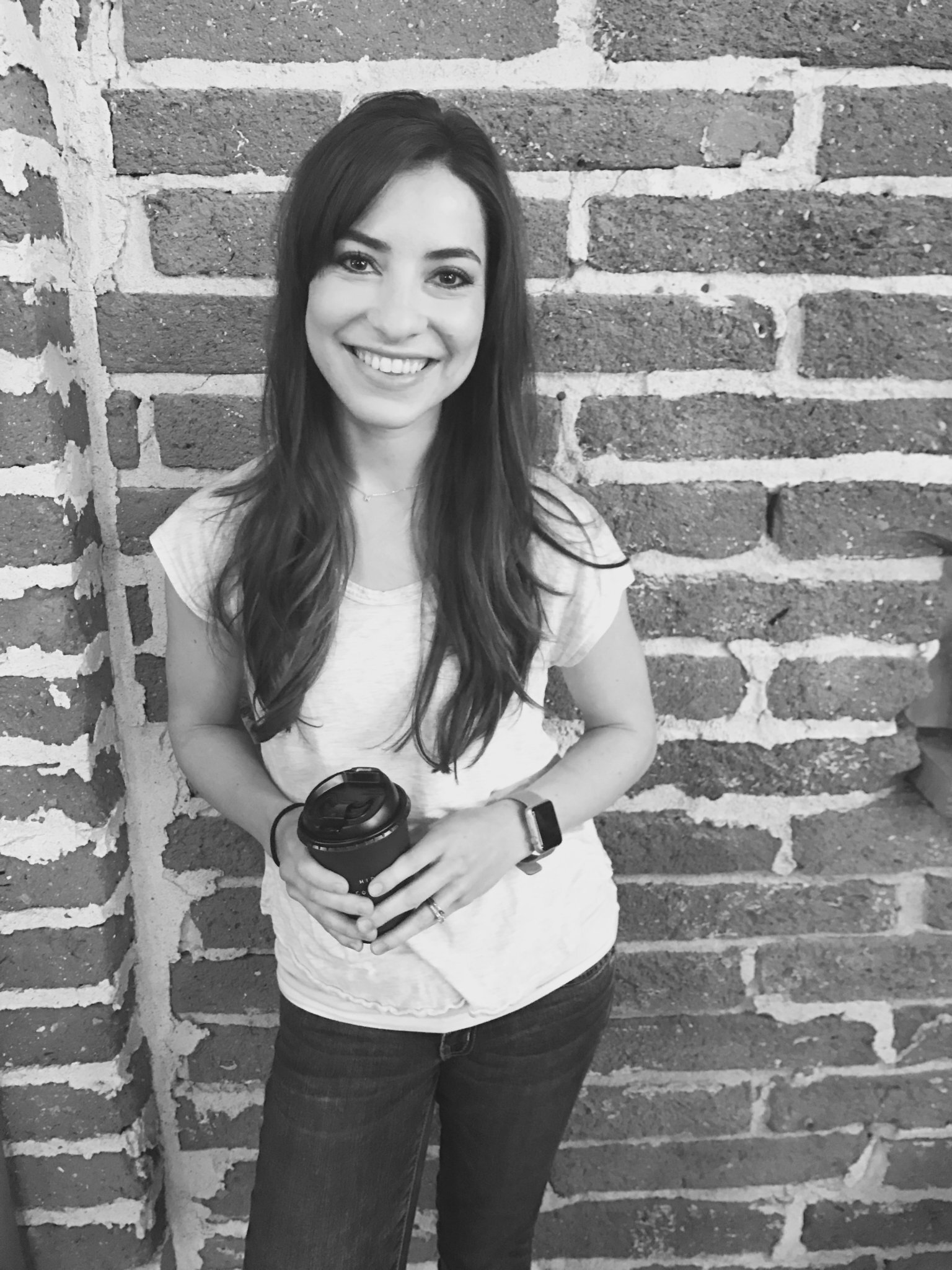Recordando mi historia y recreando el mundo
Remembering my history
and recreating the world
I was born and raised in a Mexican American Pentecostal family in rural eastern Washington. My grandparents, who are immigrants from Mexico, were farmers and truck drivers who came to the U.S. for hopes of a better life. They were introduced to Pentecostal Christianity as teenagers and devoted their lives to reading the Bible and to prayer. They continued to deepen their faith and became founders and senior ministers of my home church. I remember long services and many nights in church, hearing about the power of God to deliver people who were hurting. Their legacy is the place where my story begins.
What I did not know then, but have begun to realize now, is that while my grandmother was very dedicated to her congregation and served in every way she possibly could, she was not viewed as an authority or senior leader in the community due to patriarchal culture. She was instead referred to as a “hermana.” But regardless of how others viewed her, she continued to lead courageously and compassionately. She hosted weekly worship services two to three nights a week, led prayer over the sick, and oversaw ministries of healing and deliverance. I am grateful for her example of hope, faith, and devotion to Christ that continues to reverberate into my purpose today. In so many ways, her testimony is a theological asset and guide to me as to how I might see God through feminine experience and live out a life of inclusion and justice for all.
“Now is the time for me to change this narrative in myself and hopefully allow for the imagination of others (who have been tainted by these narratives) to be expanded as well.”
As a Latina, first generation graduate student, my goal is to overcome the cultural and societal barriers that hinder Latinas (and other minoritized populations) from pursuing seminary education and faith-based leadership. My cultural background taught me that there was a certain way a woman should live: to be a supportive wife, dedicated mother, and homemaker. I grew up being taught that women were less capable then men. Yet in all of this, God was nudging at my heart to keep growing and use my voice and talents to help others. I am sure other Latina women (and other various backgrounds) have also felt the challenge of being invisible or disregarded by male systems of domination, and so my hope is to encourage and empower these women that there is another way.
Ever since I was young (around the age of five) I sang on worship teams, taught in children’s ministry, experienced Bible camps and led small group Bible studies for my peers. When I was 17 years old, during a time of prayer, I had a vision and saw myself preaching and teaching to a large crowd of people, and I have never forgotten this vision. At 21, I became a volunteer assistant youth pastor but was never officially paid or recognized as such. At the time, I did not see a problem with this, and I accepted it as I was under the impression that my role was simply to serve the men of the church. (I believe this happened again due to the institutional oppression of women in ministry leadership.) Although, I loved God deeply and felt called to lead, I did not enter into theological education, because I had assumed this was not for me (both due to my culture and gender identity as well as my family upbringing that instilled in me an anti-intellectual approach to faith). My family would tell me that it wasn’t wise to pursue seminary education or training, because it could confuse my faith. Now is the time for me to change this narrative in myself and hopefully allow for the imagination of others (who have been tainted by these narratives) to be expanded as well.
In spite of all these obstacles, I have continued to speak, teach, and lead a relational evangelism ministry at my apartment community the past seven years. Doing all these things while being a partner and mother was very challenging work. The apartment community in particular was one of the most diverse communities I had ever lived in. In this ministry, however, I saw the true power of my Christian faith come alive. I found that being a Christian, was not valuable because I had the "supreme" religion. But, in following the example of Christ, I sensed the Spirit's leading to live with openness, humility, curiosity, compassion, and service to those whose cultures and religious traditions differed from mine. I unexpectedly came across so many gifts of love and connection with this approach, and some of my closest relationships to this day are people from across faith traditions and cultural backgrounds. This all happened not in opposition of my faith but because of it!
This is what I believe the Christian tradition must be about in this day and age. I sense that Christianity must evolve to be more self-critical and not view itself as the supreme religion, but as a way of empowered living that opens the human heart to be more deeply connected to the actual lives (and struggles) of diverse people (and all living beings) and particularly those who experience marginalization or are seen as inferior. This is what I understand loving one's neighbor to mean, and this I believe is what Christianity can offer the world today amidst culture wars and ecological devastation. Christianity can offer a sincere openness and willingness to live in solidarity with those who are suffering and seeking justice.
I believe this posture can only happen if we first integrate and deeply connect to the “outcast” parts of our own stories by doing psychological, emotional, and spiritual internal work. That is why, for the past year, I have begun seeing a therapist and spiritual director. I sought out another woman who would understand my challenges and also help me to integrate my own cultural experiences that I have had to set aside for so along. I now realize that for me to love the outcast within myself, this begins by remembering my own story as a Latina and speaking my truth. I believe this work is not just an individual act, but something for the benefit of the collective, because it must be done in community and can serve a living embodiment of Latina strength and vulnerability.
I have continued down this journey and sought to unlearn oppressive theologies that informed my childhood (even at the risk of being judged by my own family) and have begun to seek out more Latina feminist theologies such as is exemplified in Daisy Machado, Ada María Isasi-Díaz, and Teresa Delgado. I believe the time is now for me to continue to learn how to embrace the fullness of my experience and join in on the chorus of Latina women (and other women of color) who are making a difference in this world. This all starts with reclaiming the wisdom of my cultural heritage and trusting that this is filled and brimming with the glory of God. I am beginning to see how my tongue, my mind, and my ancestry brings something unique to this world that it desperately needs. My prayer is that my life will be an example to my children and to other Latinas who are struggling with what next steps to take in their healing, and in so doing, advance the work of justice and peace.
I realize that dedicating the next few years to study in seminary will require an adjustment for my entire family and am thankful their support. I also want to recognize my church congregation and denominational family who has offered resources, prayer, and time to encourage me. My prayer is that Christ will grace my family with the wisdom, love, and patience to learn a new way of being connected to one another. Lastly, I know the stress of financial uncertainty is present, but is a risk I am willing to take in order to pursue wholeness for myself and the world. I sense peace that the Lord will provide and direct our steps.
“I believe now is the time for all those whose stories and voices have been silenced, to remember their histories, and to recreate the world together.”
Lastly, I strongly feel the Spirit leading me to pursue theological studies as I want to become a Spiritual Director who can work with Latinas and other women of color. I trust that this seminary will help me on the journey of connecting my mind to my heart and body as it also doubles as a training program for spiritual directors in training. When I am finished, I will receive a Masters of Divinity, a Diploma in the Art of Spiritual Direction, and be the first ordained woman minister in my family. This program will provide the needed resources of theological diversity and learning spiritualities from across ancestors and lineage that will help deepen my understanding on what the Spirit is speaking in various cultural contexts (starting with my own). In my personal experience, this is possible not just through intellectual knowing of the divine, but a heart knowing that flows from mysticism and contemplation.
My aspiration is to learn the power of contemplative presence alongside the integration of cultural heritage, so that I can lead others who have been marginalized in deep connection with the Spirit of God. My trust is in the hope that this work will help people to become more confident, creative, and develop capacities to confront narratives of violence and contribute to embodying the best of what human life can offer as they claim and share their whole selves in this diverse world. While the road will be long and promises to be filled with challenges and obstacles, I am thankful for the resilience and grit that my life has taught me to have. I know that this, along with my faith and my community, will allow me the foundation to keep pressing forward in the times of doubt. I believe now is the time for all those whose stories and voices have been silenced, to remember their histories, and to recreate the world together.
Nereyda “Neddy” Yong is a proud Latina and first generation seminarian at San Francisco Theological Seminary who is passionate about spiritually based social engagement. Her passion is to advance and amplify minoritized voices (especially Latina) in the church and in society at large. She is currently training to become a spiritual director and her focus is to support leaders and activists of color by becoming a presence of passion and peace.
Neddy is also an ordination candidate within the Christian Church (Disciples of Christ). You will often find her doing what she loves: meeting new people, enjoying nature, trying new food, dancing, laughing with her family (she has a partner and three beautiful children), and adventuring to new places experiencing first hand the beautiful diversity present in the world.
Neddy is the recipient of the 2020 Nancy E. Roach Memorial Scholarship for Seminary Students.

